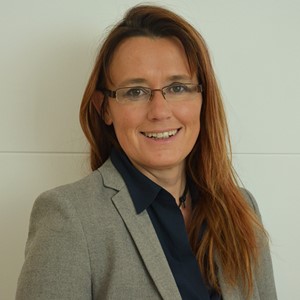Captain Tanja Harter

Captain Tanja Harter, Executive Board Director for Technical Affairs, European Cockpit Association
Tanja currently holds the position of Executive Board Director for Technical Affairs at the European Cockpit Association. In that function she is also a member of the EASA Stakeholders Advisory Body (SAB), the EASA Flight Standards Technical Committee (FS TEC), as well as the Aircrew Training Policy Group (ATPG).
Within ECA she has now taken the leading role in the development of ECAs Future Airline Pilot Profession project.
As Chair of the International Federation of Air Line Pilots‘ Associations (IFALPA) Human Performance Committee, Capt. Harter is responsible for all training & licensing, human factor and medical issues within IFALPA. In the area of training, she has taken a leading role in the IFALPA MPL workshop as well as the development of the ECA Training Compass.
Following her studies in electronic engineering at the University of Technology in Munich she received her pilot training at the Lufthansa Pilots School in Bremen, Germany & Phoenix, AZ.
Capt. Harter flew the B737 and B747 as FO & SFO. She currently flies the A320 family for Lufthansa as a Captain.
She is an active CRM Instructor as well as an accredited Business & Management Coach.
She was and is actively involved in numerous international working groups and initiatives on behalf of ECA and IFALPA as the IWG (ICAO Doc 9625) Development of EBT, the Development of the Co-Branded (IATA/ICAO/IFALPA) MPL Implementation Guide, ED 2, the EASA MPL Advisory Board and is the IFALPA Representative to the ICAO NGAP.
Flying Again After the Pandemic – Supporting Readiness and Resilience of the Crews
Skills decay among pilots was identified early in the pandemic as a potential threat to safety. After long period of no flying, crew require an additional cognitive effort for tasks that were previously done intuitively. With the loss of this fluency, ‘the intuitive tasks’ become more burdensome and tiring. Flight safety experts and authorities anticipated that threat but had only a limited toolbox to mitigate against it.
We would like to look at the different aspects of operations where skills decay may have presented prominently and give concrete examples of challenges experienced by crew.
For example, on the operational side – elements such as briefing (e.g. where to find what information or updates introduced also during the pandemic), getting back in the flow of cabin crew briefing, passenger announcements (including additional COVID related ones) or regular required paper work – all require additional brain capacity when not practiced for a longer period of time.
The presentation will also address the question of how we can prepare the crews, both from the airline and from pilot’s perspective, for such ‘freeze’ of exposure to practicing of their daily tasks. Are there elements that could be introduced in the recurrent training, improving both crews’ resilience and capacity to quicker refresh the knowledge and reflexes, or techniques that could be recommended to the crews? What are the possible lessons learnt on the importance of initial training?
The presentation further will elaborate on the need of not letting crew completely detached during the time of absence by updating on a somewhat regular basis, attending voluntary company calls, chair flying dedicated to return to service program/syllabus, but also on the usefulness of company’s dedicated return to service program, staggered depending on the time of absence.

